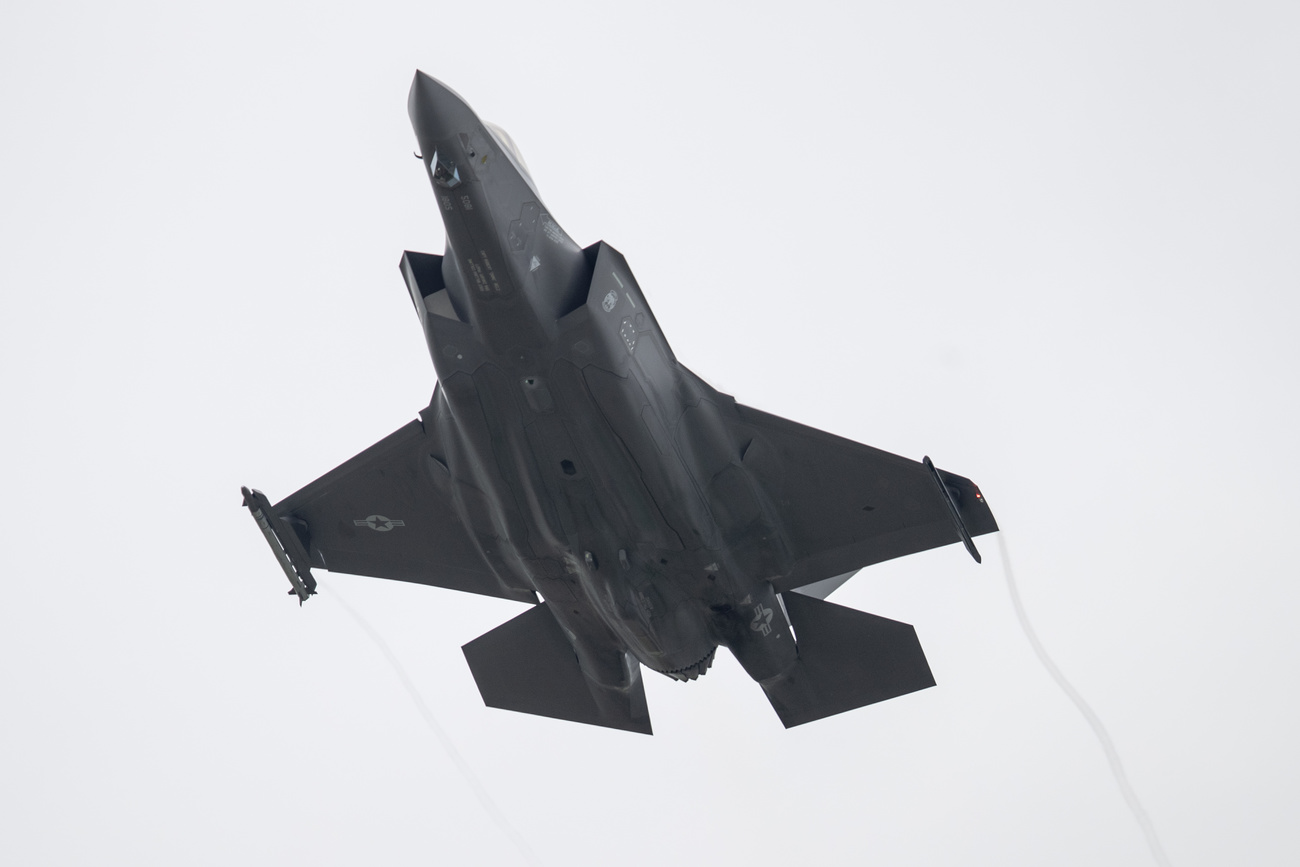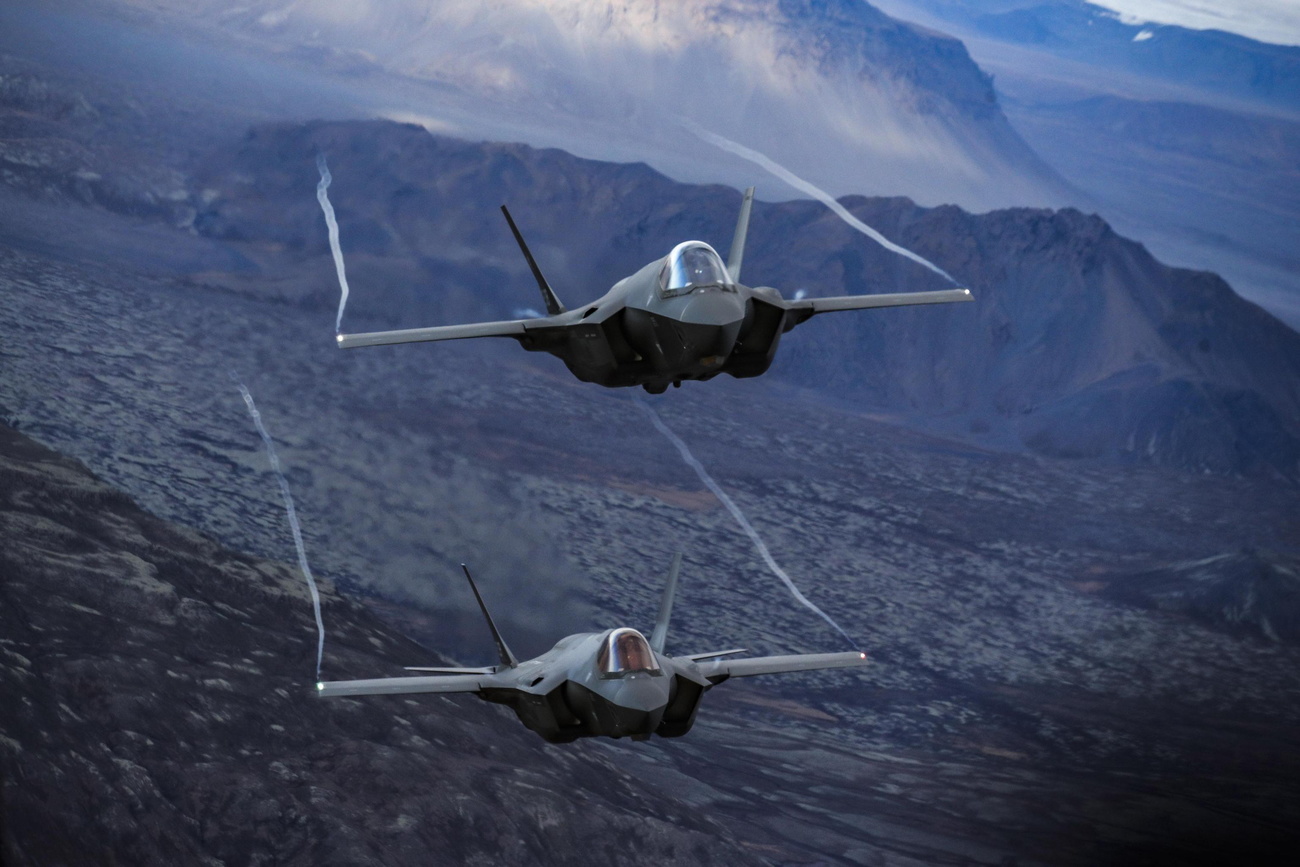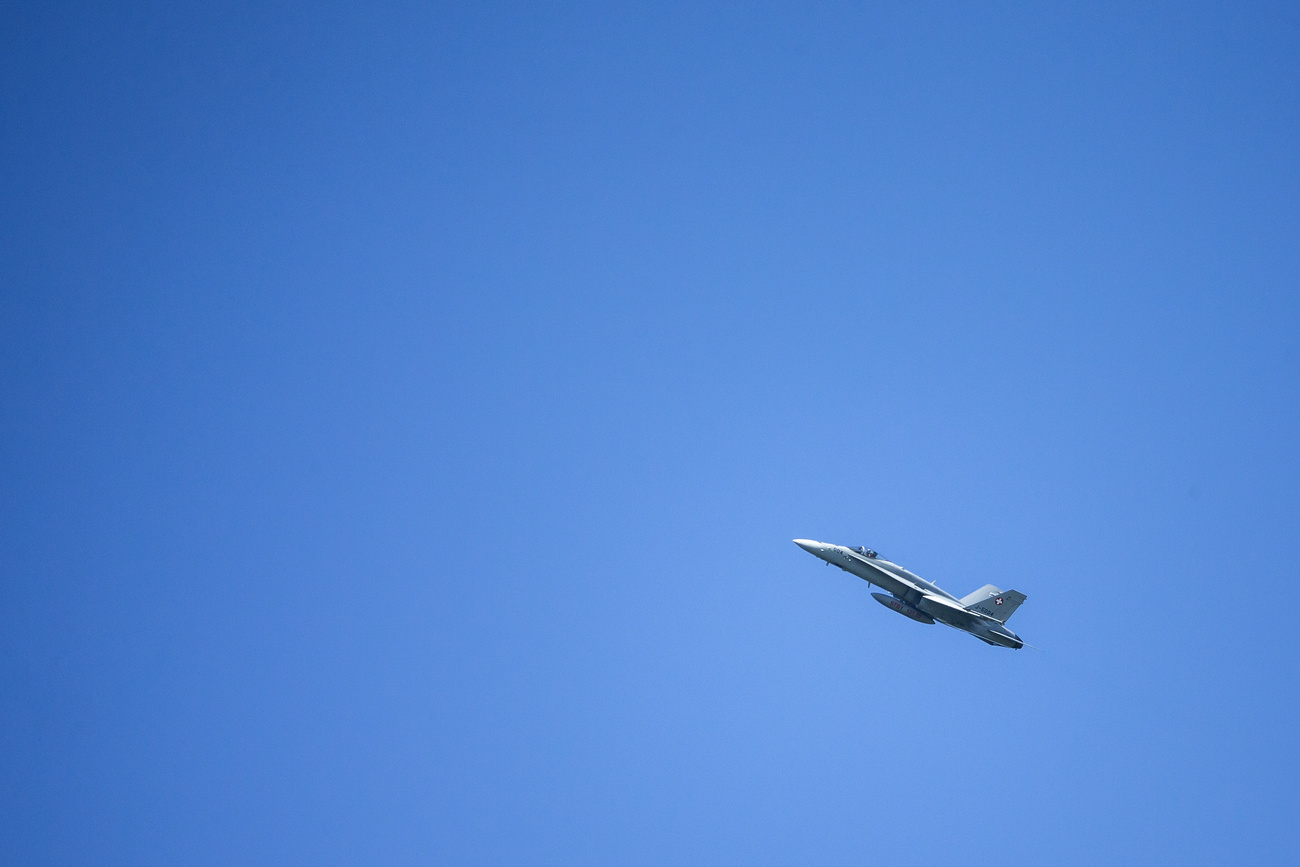
Swiss media frets about fighter jet choice impact on EU ties

A day after the government’s decision to opt for US-made fighter jets, some papers praise the pragmatic and cost-effective choice. Others consider it a geopolitical mistake and a setback for Swiss-EU relations.
On Wednesday, after months of speculation and lobbying by four fighter jet manufacturers, the Swiss government announced it would buy 36 new F-35A machines built by US firm Lockheed Martin for CHF5 billion ($5.4 billion).
The right choice? For the Blick newspaper, at least, it is: “the Federal Council [governing body] is doing exactly what’s necessary”, it writes on Thursday. After years of expert tests to find the “most appropriate” model, it simply opted for the winning plane, the paper writes.

More
Swiss government sets sights on F-35A fighter jet fleet
For the tabloid, avoiding geopolitical considerations about the origin of the manufacturers (two were American, two were Europe-based) was the right approach, even if it wasn’t to the liking of all the 8.5 million citizen-“fighter-jet experts” in the country.
In its editorial, the Neue Zürcher Zeitung agrees, saying the government was in any case legally bound: “it had to award the contract to the most economically attractive offer”, the paper writes. The offer by Lockheed-Martin was simply better than that of the others.
However, the NZZ also notes that relations with the European Union – which were thrown into disarray last month by the Swiss rejection of a draft framework deal – will not be helped by this decision.
Other papers share that view, including the Tages-Anzeiger, which wonders how the government is going to ensure that the European fighter jet snub doesn’t lead to a further downturn in relations with Brussels.

More
Wafer-thin majority approves new fighter jets
The German-language paper leads with a cartoon showing French President Emmanuel Macron, reeling not only after the Swiss rejection of his country’s Rafale jets, but also after Monday’s historic European championship victory by the Alpine nation over France.
Macron, the newspaper claims, even personally telephoned Swiss President on Tuesday to try to lobby for the French model; to no avail, however, as Defence Minister Viola Amherd eventually “got what she wanted”.
Geostrategic considerations
As for what this means for Swiss-EU relations, the newspapers can only speculate. In the French-speaking part of the country. they are clearly unhappy about the Lockheed-Martin choice.
“The purchase of a new fighter jet has to take into account all aspects, including the geostrategic question,” writes Le Temps. “On this front, the European models – the French Rafale and the English-Italian-Spanish-German Eurofighter – were clearly the priority.”
The decision is a “strategic error” on the part of the defence minister, according to the French-language newspaper. It notes that on the internal political level, too, the purchase could yet be threatened by dissenting voices in parliament and the broader public. There are even plans to launch a people’s initiative to challenge the decision.
For La Liberté, the choice sends a “disastrous signal” to Europe. “Not so much in the sense of trying to heal the tensions after the end of the framework agreement, but rather in terms of investing and projecting in a common future,” it writes. “A security strategy is crafted together with one’s neighbours; it’s with them that one builds one’s future”.

In compliance with the JTI standards
More: SWI swissinfo.ch certified by the Journalism Trust Initiative































You can find an overview of ongoing debates with our journalists here . Please join us!
If you want to start a conversation about a topic raised in this article or want to report factual errors, email us at english@swissinfo.ch.